- Home
- Matthew Costello
Vacation Page 10
Vacation Read online
Page 10
For a moment, Christie remembered what it was like to be young.
The boy walked past Christie, who hoped she wasn’t radiating an “I’m the mom” vibe.
Her motherly spying over, she continued down to the water.
* * *
Jack got out of the Explorer. The lot sat in the dark with only two tall lights at opposite corners of the sea of cars.
Guess they don’t want people going on any joyrides at night.
Standing there, he looked at those two lights, the small milky pools each made.
Near the light to the right, he saw the narrow roadway leading up.
The service road.
Jack wondered what the rest of this operation, this camp, was like.
He looked up.
Any security cameras here?
None that he could see, but it would make sense. Didn’t every public space have security cameras?
Whatever cameras they had here—if they had any at all—were well hidden.
He slammed the door and went to the back of the SUV.
The electronic key popped open the back.
Now empty, save for blankets, a map book. A New York State Atlas. The Mid-Atlantic Region.
He pushed them aside and lifted up the covering over the storage area.
So dark here.
There was a flashlight in the glove compartment.
But then if they had security cameras here, they might also see.
A chance he’d have to take.
He went and got the light.
* * *
Christie walked over to Kate, and smiled.
“You okay?”
“Sure, Mom. Why wouldn’t I be okay?”
Conversation with a thirteen-year-old could be tricky. Questions invited questions back. Questions in general—never welcome.
“Good. Nice here, hm?”
“S’okay. I like the lake.”
Kate turned back to the water.
“Me, too. We’ll get a full day down here tomorrow. Swim, use the boats. I think you’ll have fun.”
Kate nodded, neither confirming nor denying the possibility.
Christie stood there. She thought of all those years ago, before the Can Heads, when she and Jack first thought about having kids.
When she decided that she wouldn’t be a working mom, like her own mother. That she’d leave her teaching job.
She’d raise her kids.
Jack liked the idea as well.
Though there would never be a lot of money, there’d be enough.
And when the great famine started, the worldwide drought—whatever the hell it was that changed things forever—the decision made even more sense. Christie taught the kids—and life closed in.
In a world with Can Heads, being home seemed like the only sensible thing.
Kate turned to her, as if sensing that Christie had drifted.
“Where’s Simon? Dad?”
“Guess Simon’s still playing with those kids. He’ll be here soon. Your dad’s parking the car.”
Kate nodded.
Together they waited.
* * *
“Stop right there, kid.”
Simon didn’t move. The man’s voice sounded mean, the way he barked at him.
Had he done something wrong, was he in trouble?
The man came between Simon and the fence.
Simon couldn’t see much, but the man held a gun. He could see that. And he was tall … big.
Bigger than Dad, Simon thought.
“I’m sorry,” Simon said, not really knowing what he was apologizing for.
The man took another step.
“You’re not supposed to be over here. There are no trails over here. You’re supposed to stay on the trails, kid.”
Simon nodded, then realizing that his head movement wouldn’t be seen, he said, “Yes. I—”
Simon wanted to explain about the other kids, the bigger kids who got him to play here, to play hide-and-seek. That brought him here, to this man, to the fence.
He didn’t mean to go somewhere he shouldn’t.
For a moment, the man didn’t say anything.
“Now you just turn around, son. And walk back. That way.”
Simon made a pointing gesture somewhere over his shoulder.
“Over that way? There?”
“Yeah. Nice and straight. You’ll come to one of the paths. Make a left on it. Keep walking.”
“Okay. I’ll do that.”
Simon wanted to ask, Will you tell my parents?
But instead he started to turn, feeling the man with the gun, this guard, looking at him.
He walked as straight as he could.
Step after step.
Nice and straight.
Almost all the light faded here.
And the other kids? Had they run away when they saw the guard? Or had Simon gotten so lost that they had never been around here at all?
He blinked.
Hoping he could tell when he reached the path.
He made promises to himself. Going to stay only on the paths. And maybe he wouldn’t play with those bigger kids. He’d stay close to his family, their cabin.
The crunchy covering of the forest changed. A path. Barely able to be seen, but he could feel the smooth flat dirt of a trail.
Simon turned left.
* * *
“Hey, where’s Jack?”
Tom and Sharon had walked close to Christie, near the warm glow of the bonfire.
“Oh, he’s coming, Tom.” Then: “Think the kids are okay? It’s getting dark…”
Tom nodded. “Sure. But I’ll go find the hide-and-seekers and bring ’em back alive!”
He walked away.
Christie stood alone with Sharon.
“So, where do you guys live?” Christie asked.
“Yonkers. Know it? Quieter than the city. If you know what I mean. You?”
“Staten Island. Same thing. Quiet. Isolated.”
Quiet. A new code word.
Meaning no break-ins. No attacks. With the flames flickering, reflected on the water—that world seemed so far away.
“Good for the kids there. I know that’s what’s important to Tom.”
“Got to think about your kids.”
Sharon turned to her. “Well, yes. But they’re not my kids.”
“Really?”
“Yes. Tom—his wife died a few years back. She died when the drought came. Some illness. They didn’t understand.”
“Did it have anything to do with what happened? To the crops, the farms?”
“The doctors didn’t know. I was her friend. And I, well, I helped him through things. Just a friend. At first. But then … we got married.” The woman, now seen in an entirely different light by Christie, took a breath. “Seemed to make sense. Now, they’re mine. They know that. Tom knows that. That’s how I feel. They’re my kids now.”
“Good for you.”
Silence. Then: “The boys, your boys—they seem happy.”
“I hope so. It’s hard. But I try my best.”
Tom’s voice rang out: “Got them. Safe and sound.”
Christie turned to see the two Blair kids walking side by side, and then off on his own, yards away, Simon.
Christie’s instincts told her something had happened.
But that could wait for later.
* * *
Back at the open trunk, Jack aimed the light at the storage compartment key hole.
He saw something—stray marks around the hole. Small scratches.
All the marks of someone trying to break in.
I would have seen those marks before.
Jack turned to look over his shoulder. If there were cameras, they would pick up his light, his bending over the compartment. The hesitation.
But as soon as he had the thought—someone tried to get in here. Maybe someone did get in here—he pushed it away.
Who knew if the marks had been there, made by his k
ey trying to find its way in.
And if there were cameras?
He hunched over the compartment as he put the key in and unlocked it. The metal cover popped up.
Jack held the flashlight in his hand as he opened the lid.
He tried to shield what lay below with his body.
The armory. His indulgence to his concerns and fear … and his paranoia.
He sure as hell couldn’t tell where legitimate concern ended and paranoia began.
Everything looked in place. The guns neatly nested in the foam. Boxes of shells on the side. The small, timed explosives. A larger flashlight.
Crazy, he thought, to be traveling with this.
But then he thought, Crazier not to.
Then back to his paranoia: If someone had gotten in here, saw this, what would they think?
Or had they only tried to get in?
Jack shook his head. No way he could answer that one, no possible way.
He turned around.
Sensing someone looking at him. His flashlight made a random pool of light in front of him.
The sound of the insects, cicadas—so rhythmic, so loud—could drown out a lot of sounds. How did they survive here?
No such summer sounds back home. They were long gone.
He took a breath, then went back to the compartment. All the goodies safe and sound. He shut the lid and heard it snap into locked position. He turned off the flashlight and put it in his back pocket
As he walked away, back to the main area of the camp, he pressed the electronic key and heard a chirp as all the SUV’s doors locked.
It was fully dark when he got down to the lake.
20
Night
“What—no marshmallows?”
Jack walked down to Christie and the Blairs. He looked at all the Paterville families gathered by the lakeside. Off to the left, the roaring fire sent glowing embers flying up to a clear night sky. Already, stars could be seen, way more than in the murky skies over Staten Island.
Tom laughed. “Marshmallows. Wouldn’t that be sweet.”
Jack spotted Simon sitting on the sand close to Christie. Too close, he thought.
Digging in the sand. Not playing with the Blair kids. Jack’s antennae went up. Something happen there?
And Kate?
He looked around and spotted her, a dark shape but recognizable to a parent, standing by the fire while some young guys fed the blaze pieces of wood.
“The fire’s nice enough,” Jack said.
Tom came closer, lowered his voice. “You know, we could blow it off. Head back to the cabins. Have a drink?”
“Drink?”
Tom grinned. “Doesn’t taste great but packs a wallop.”
Didn’t sound bad to Jack. He nodded. “Okay. Let me see if Christie and the kids are all okay.”
He went over to Christie.
“Tom and I going to go up to the cabin and talk.”
“Talk?”
Jack leaned close. “He has something to drink.”
As Jack said the words, he thought, How long has it been since I sat quietly, just talked to another guy? Shared a drink?
“You okay with that?”
Christie nodded. “Sure. If it’s drinkable—save me some?”
Jack laughed. “I will.” Back in the day, she liked her glass of white wine. Rare stuff now.
“Yeah,” he said. “I will.”
Jack was about to add, If Simon goes near the fire, keep an eye out.
As if Christie wouldn’t watch him like a hawk.
“All right. See you later.”
He turned back from the shoreline and joined Tom for the walk to the cabins.
* * *
Kate looked at the fire. The red glow painted the bodies of those tending the fire, the boys poking it, feeding in piece after piece of wood.
She stood so close to the blaze that the heat felt as if was toasting her face. The streaming flames reflected in the lake; the water so flat like a black mirror.
She caught one of the guys working the fire look right at her—and he smiled.
The same lifeguard, she thought. The same guy she had seen today. Skin all tanned, his hair bleached blond.
The boys where they lived, the boys her age, seemed so stupid, so immature.
This older boy was different.
She smiled back, and then quickly lowered her eyes down to the fire, right into the heart of the burning wooden coals sparking like reddish-yellow jewels.
* * *
“Go on. Take a hit of that.”
Jack brought the coffee cup up to his lips, first giving the substance a smell.
Alcohol.
The government hadn’t exactly banned the sale of it, but with anything that could be used for food or fuel, booze became both hard to find and amazingly expensive.
“And it’s okay to drink this?”
“Been having it every night. Under the stars. It’s a beautiful thing.”
Tom extended his cup for a toasting clink. Jack knocked his cup into Tom’s.
“Down the hatch,” he said. The smell: gasoline. The taste: well … maybe this was what gasoline tasted like.
“Whoa. Nobody light any matches around us.”
“The cook brews it up. Somehow. The kitchen workers can get you a bottle. Supposedly Ed Lowe doesn’t know about it. Keeping this place all about family fun and stuff.”
Jack took another sip, suddenly less eye-popping than the first.
“I’m guessing … a little bit goes a long way?”
“Got that right.”
Then, quiet. The sound of singing began to echo from the lake below. The bonfire’s glow flickered in and out of the dense trees that shielded the cabins.
Jack turned to Tom. “So, Tom—what do you do?”
He tried to keep the cop-tone out of his voice.
“Do—or did? I used to work at a research center run by NYU in the city. Now I work at one of those government supply centers. Handing out food when we have it. Place is a zoo.”
“What kind of research?”
The question seemed to make Tom hesitate.
“Lots of things. You’ve heard of GM food? Genetically modified? My lab experimented with that a lot. All government funded. Modifying strings of DNA, playing with—oh, I’m just boring you.”
“Not at all.”
Tom didn’t continue.
The sounds rolling up from the lake were undecipherable. Voices, laughs, a squeal. The fire casting a reddish-yellow glow over the water.
“What happened?”
“Hmm?”
“Why did you leave?”
“The government shut the whole thing down. Actually, they cherry-picked a few of the team, brought them to Washington. Think they were disappointed in the rest of us. Like we couldn’t stop what was happening.”
“Then—this was after?”
Tom looked at Jack. “After? You mean after the world went to hell, after the food started disappearing? Yeah. After. But, you know, when the genie is out of the fucking bottle, damn hard to get him back in. Not sure any of us knew what might happen when we started playing with the GM stuff.”
Jack wondered if Tom had something do with what happened. So many theories. Experiments gone wrong. Tinkering with food production.
But already the shared sips of alcohol had lost their zing. Too many questions.
“Now, I just hand out what passes for food these days.” Tom said, closing the door on that part of the conversation.
It was something that Jack would like to get back to.
“And you—what’s your line of work?”
Jack took another sip. Almost done, and he didn’t think he wanted a refill.
“I’m a cop.”
“Really? Wow. Could have fooled me. I mean, you don’t seem like a cop.”
And how exactly are cops supposed to seem?
And was that comment supposed to be a compliment?
People g
ot funny around cops.
“I’m on vacation. On the down-low, as the kids say.”
Tom took a breath. “And how is it out there? On the streets. Getting worse?”
Jack looked away. “Worse? Not getting better. Looks to me … like it’s spreading.”
“Shit.”
“Each day, new blocks. Gone. More Can Heads. No new cops.”
“You know, there was a theory one of the guys in my lab had. That this was how the dinosaurs ended. Feeding off each other. That’s what really wiped them out.”
“Really? I could believe it. When you see humans hovering over a body, slicing it into pieces like crazy butchers, bundling the goddamned meat up like—”
Jack suddenly realized that he had gone too deep into the hole. The hole of being a cop. Fighting them.
“Sorry. Get carried away, you know. That’s what’s good about being here. Shake all that shit off. Get away from all that ‘beware your neighbor’ paranoia.”
“Except not one who has some booze, hm? And this is a good place, Jack. Lot of guards. The gorgeous lake. Enough food. Not a bad place at all.” Then: “Glad you guys are our neighbors.”
He clinked his glass against Jack’s.
“And you’re staying a few more days, right?”
“Yeah. No one wants to leave. What the hell do we head back to? No real family for us. Least not around New York. The family would love to just stay here forever.”
“You and a lot of people, I guess.”
Tom again reached down for the milk bottle filled with the clear liquid.
“Refill?”
Jack was about to say no thanks. Instead, he held out his cup and watched Tom pour.
* * *
The cabin was quiet.
Kate and Simon in bed. Windows wide open so a cool breeze blew in. The occasional sounds from the woods.
Christie sniffed, taking in the strong smell of alcohol on Jack’s breath, and smiled when he said, “You wouldn’t have liked it.”
Now he lay in the bed, the background noise in his ears, Christie close, her back to him.
Not feeling sleepy.
Not at all.
He inched a bit closer so that his body pressed against hers.
He put an arm around her and with the precision borne of years together, his hand smoothly cupped her right breast.
He felt himself stir against her. Always a good feeling.
But then Christie turned to him.

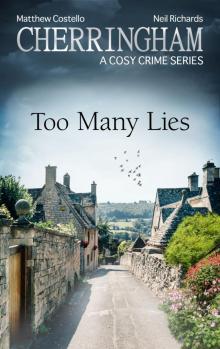 Cherringham--Too Many Lies
Cherringham--Too Many Lies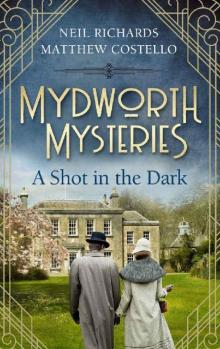 Mydworth Mysteries - A Shot in the Dark (A Cosy Historical Mystery Series Book 1)
Mydworth Mysteries - A Shot in the Dark (A Cosy Historical Mystery Series Book 1) Cherringham--The Gentleman Vanishes
Cherringham--The Gentleman Vanishes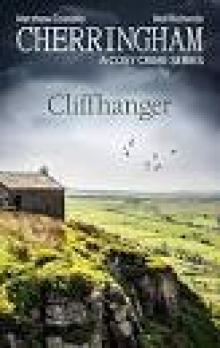 Cherringham--Cliffhanger
Cherringham--Cliffhanger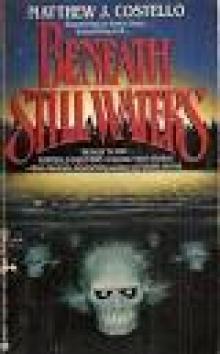 Beneath Still Waters
Beneath Still Waters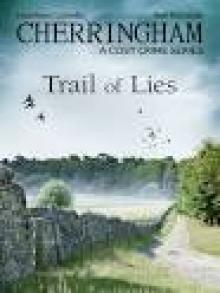 Cherringham--Trail of Lies
Cherringham--Trail of Lies The Gentleman Vanishes
The Gentleman Vanishes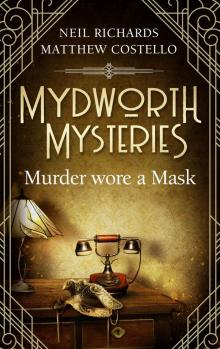 Mydworth Mysteries--Murder wore a Mask
Mydworth Mysteries--Murder wore a Mask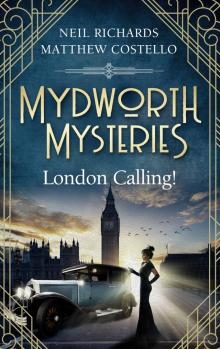 Mydworth Mysteries--London Calling!
Mydworth Mysteries--London Calling!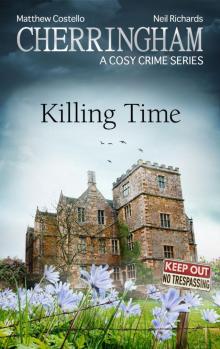 Cherringham--Killing Time
Cherringham--Killing Time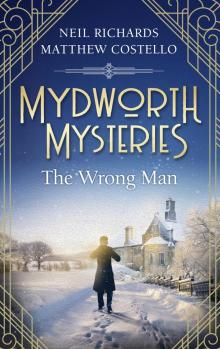 Mydworth Mysteries--The Wrong Man
Mydworth Mysteries--The Wrong Man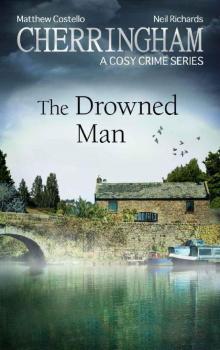 Cherringham - The Drowned Man
Cherringham - The Drowned Man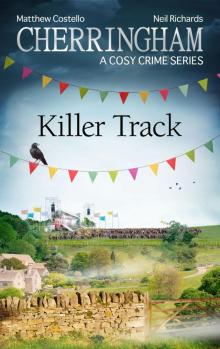 Cherringham--Killer Track
Cherringham--Killer Track Cherringham--The Secret of Brimley Manor
Cherringham--The Secret of Brimley Manor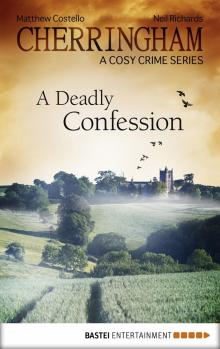 A Deadly Confession
A Deadly Confession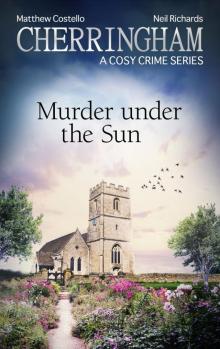 Cherringham--Murder under the Sun
Cherringham--Murder under the Sun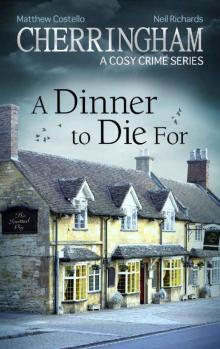 Cherringham - A Dinner to Die For
Cherringham - A Dinner to Die For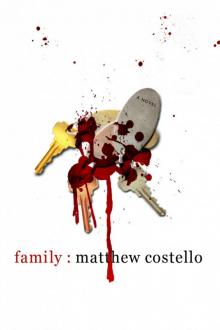 Family
Family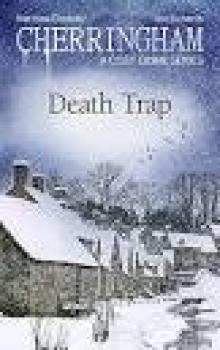 Cherringham--Death Trap
Cherringham--Death Trap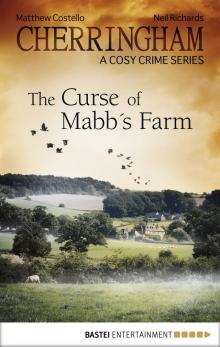 Cherringham--The Curse of Mabb's Farm
Cherringham--The Curse of Mabb's Farm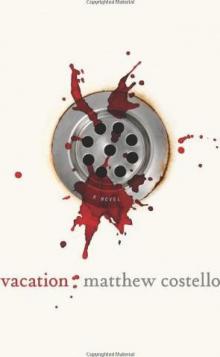 Vacation
Vacation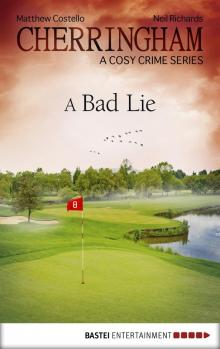 Cherringham--A Bad Lie
Cherringham--A Bad Lie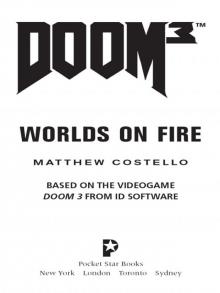 Doom 3™: Worlds on Fire
Doom 3™: Worlds on Fire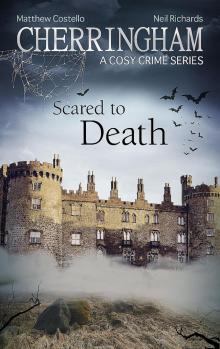 Cherringham--Scared to Death
Cherringham--Scared to Death Home
Home Dead in the Water
Dead in the Water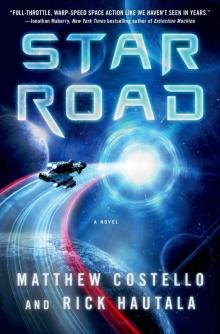 Star Road
Star Road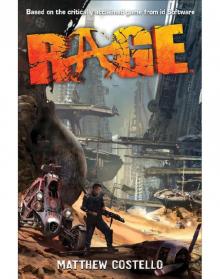 Rage
Rage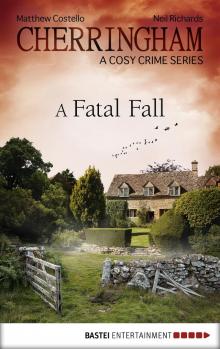 Cherringham--A Fatal Fall
Cherringham--A Fatal Fall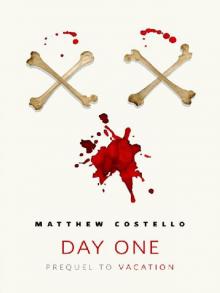 Jack Murphy_Prequel_Day One
Jack Murphy_Prequel_Day One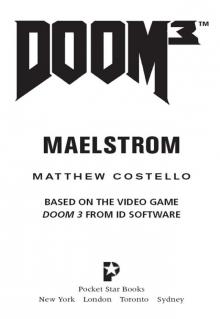 Doom 3™: Maelstrom
Doom 3™: Maelstrom